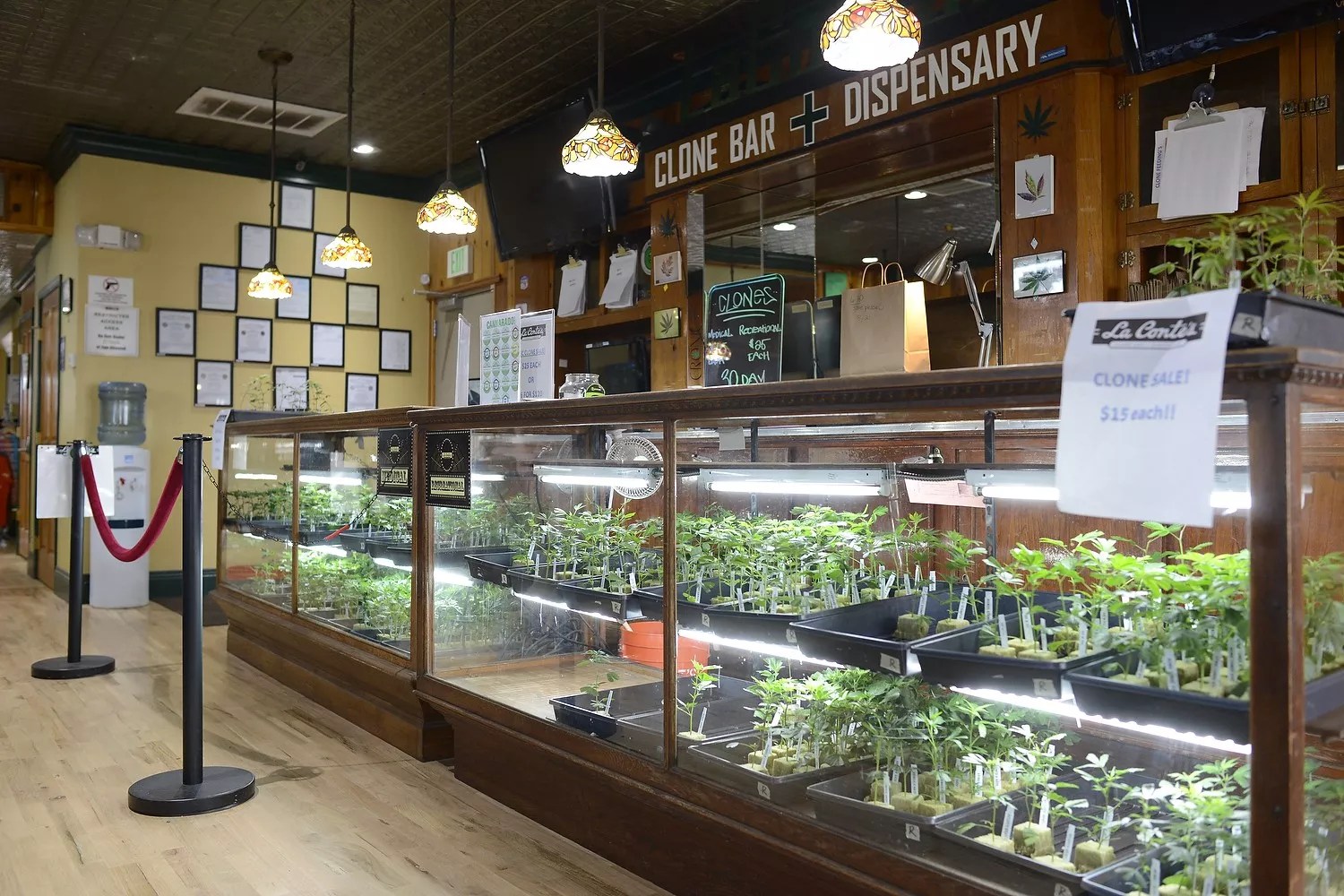
Scott Lentz

Audio By Carbonatix
Colorado’s marijuana industry rebounded slightly in June, accounting for about $131.3 million in sales and just over $22.1 million in taxes and fees, according to the state Department of Revenue.
Dispensaries saw a decent bump over May, DOR figures show, with sales increasing by over $5 million in June – but stores are still performing worse in 2023 than in previous years. June’s marijuana sales this year dropped over 10.3 percent from those of June 2022, putting pot shops on pace to hit around $1.56 billion in sales by the end of 2023. While that number may seem large, this year’s projected marijuana sales represent a 12 percent dip from the $1.77 billion in sales in 2022 and over 32 percent less than the record $2.23 billion in sales in 2021.
After record-breaking performances during the COVID-19 pandemic, Colorado’s marijuana industry experienced a surge in growers and a surplus of product. The oversupply and increased competition from states new to legal marijuana have put wholesale prices and commercial pot sales in a downward spiral across the country, particularly in Colorado, where almost 30 percent of the state’s marijuana workforce was cut from 2022 to 2023.
Recreational pot sales have certainly been part of the downturn, but Colorado’s medical marijuana sector is currently dying on the vine. June’s reported medical marijuana sales of $14.6 million were the lowest monthly total since the DOR began publishing sales numbers in 2014. The previous record for the lowest monthly total was set in May, with medical marijuana responsible for just under $15 million in sales.
There was a blip of good news – for business owners, if not consumers. After sitting at record lows since last October, the median price for a pound of marijuana flower increased about 8.3 percent from April to July of this year, from $649 to $703, according to the MED. Although slight, this is the first bump in nearly two years for wholesale flower prices.
Two other recent factors could be affecting dispensary sales revenue, however.
At the end of July, Mastercard, which accounts for about one-fifth of all debit-card purchases in the country, confirmed a Bloomberg report that it had banned payment processing vendors from allowing retail marijuana transactions. The move was a large blow to dispensaries but not a huge surprise, as retail marijuana businesses are still federally banned from bank and financial services. (Even though third-party payment vendors and smaller banks and credit unions will offer high-fee services to the pot industry, providing financial services to state-legal marijuana businesses is still considered federal drug trafficking.)
Most dispensary sales are conducted in cash to begin with, though, and Colorado industry stakeholders expect other payment processors to pick up where Mastercard left off. Still, the development came at an exceptionally bad time for Colorado dispensaries eager to take advantage of the state’s new law allowing store pre-orders to be paid for online. Dispensaries that want to offer online sales (orders must be picked up at the store and cannot be shipped) must find banks, card providers and payment processors willing to play along.
No dispensaries or ordering platforms have announced they’re offering the new online ordering service yet, but the law just took effect in August.